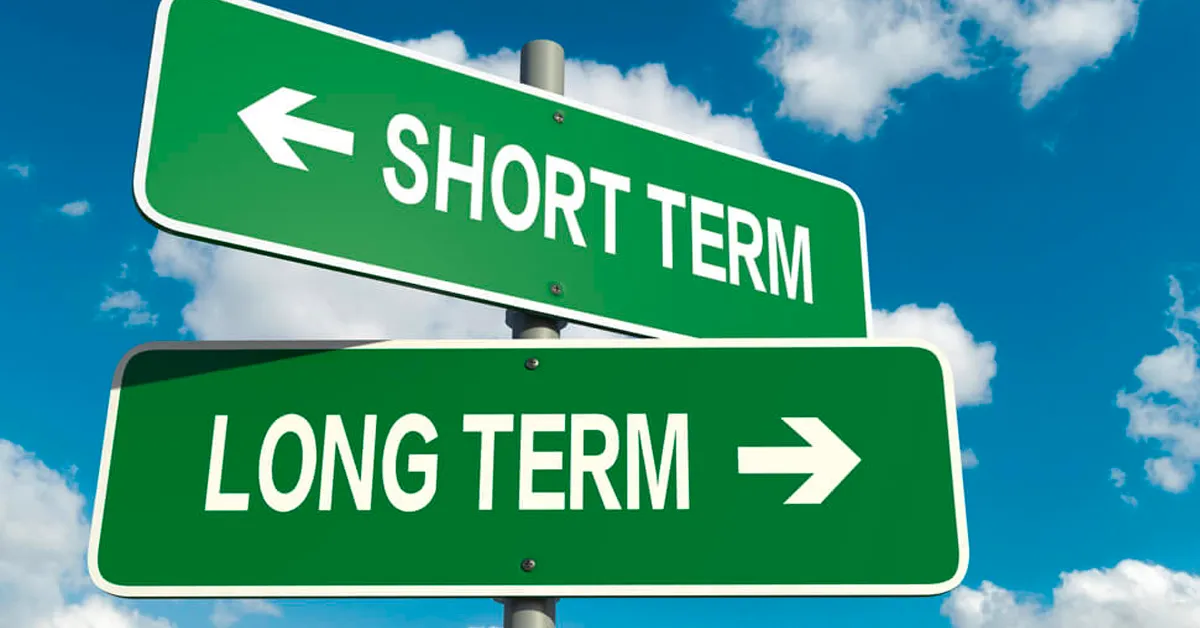As an owner of one or multiple investment properties, you have two rental options. You can choose to collect reliable rental income with a long-term lease, or you can take a risk by having a short-term rental with the potential to earn much more.
There are pros and cons of having either a daily rental or a long-term rental. Let’s look at both options.
What is a Short-Term Rental?
This is the type of rental property that’s furnished and occupied for just one night or sometimes as long as a month.
Short-term rentals may be in cities, near resorts, or close to tourist attractions and are often used as vacation rental properties. Many hosts now rely on the best short-term rental property management software to streamline bookings, communication, and guest experiences.
They’ve become more popular in cities over the years as tourists have turned to sites such as Airbnb and Vrbo to find a place to stay instead of going to a hotel.
Advantages of Short-Term Rentals
There are many advantages to renting out a property on a short-term basis. Here’s a brief overview:
Increased Income Potential
The amount you can earn on a short-term vacation rental can be 2 to five times higher than what you’ll get from long-term renters, on average.
For a property in a high-demand area, you can charge a much higher nightly rate.
Less Wear and Tear
Your unit won’t be occupied every day and night, so it's less likely your unit will need repair.
Additionally, given that the unit is cleaned more frequently (once after each stay), it’s kept in better condition and any maintenance issues are addressed before they balloon into a large expense.
You Can Use the Property
Sometimes you might want to get away and stay in the place that you own. You can stay there if you don’t allow bookings during specific days or weeks.
Tax Deductions
You should be aware of the 14-day rule, which allows you to rent out a property or portion of a property for 14 days or less and not pay any tax on the income earned.
There are some conditions, however. There are also a few deductions you may be able to take advantage of when you have a rental, including Airbnb (or other online rental booking sites) fees, home furnishings and supplies, transportation costs, and repairs.
Drawbacks of Short-Term Rentals
There are also some disadvantages of renting out your property on a short-term basis, such as:
Income Isn’t Guaranteed
While there may be periods where there’s strong demand for your property, there may also be times when fewer bookings are depending on the weather and the season. You can offer off-peak rates to attract more guests, but you might end up losing money if the discount is too large.
Increased Competition
You’re competing against other owners, resorts, and hotels that have more modern properties or great amenities. You may need to renovate your property more often to compete or offer lower rates.
Furnishing the Home
A short-term tenant will expect the place to be fully furnished with a TV and Internet access. There should also be small appliances, utensils, pots and pans, dishes, glasses, and linens. You have to foot the bill for everything.
No Screening Processes
You likely won’t have the opportunity to screen people who stay at your property.
You can check out their profile and reviews if it’s an Airbnb rental, but you aren’t able to get to know the person. You won’t be able to tell how many people will be staying or if they’re renting your property for a party. The right rental property insurance is a must to lower your risk and liability.
Extra Management
Having various renters for over a week or month means you need to clean the unit each time someone leaves.
If you have one property, it might not be much of a problem if it’s nearby. However, it can be a hassle if you own a property that’s not close to you or own multiple properties.
The work required may end up becoming a full-time job. You can hire a property manager or management company to handle the day-to-day needs for anywhere between 10% to 30% monthly rental income.
However, the costs can outweigh the benefits. Make sure to factor the cost of a property manager into your business model and charge appropriate cleaning fees to maintain your profits.
What is a Long-Term Rental?
This is an unfurnished property that’s rented out for a month or more (typically 12 months). A long-term rental is usually where someone wants to live for years at a time.
Advantages of Long-Term Rentals
Long-term rental properties have many advantages, such as:
A Steady Stream of Income
Having long-term tenants that sign a lease agreement means you’ll get a consistent amount of money every month to cover the mortgage and other expenses.
You should always have positive cash flow if you have long-term renters, especially if you use property management software to streamline the process.
Rising Rents
You can raise the rents every year by at least 2-3%, or even as high as 20-30% depending on the market, rent inflation, and competition.
Fewer Upfront and Ongoing Expenses
You don’t need to provide a tenant with any furniture, utensils, or other items because they’ll be supplying their own. You also don’t need to pay for utilities since tenants usually cover those expenses.
Easier to Manage
Having just one tenant for a long period means you only need to clean the place when they move in and move out, which may be after a year or more. It will also make expense management much easier.
Tenant Screening
You’re able to meet or speak with potential tenants, screen and select the right tenant that will be a good fit for your property.
Drawbacks of Long-Term Rentals
Naturally, there are also disadvantages to long-term rentals, such as:
Increased Wear and Tear
Since the unit is always occupied, the tenants will be using everything constantly. That means the lifespan of appliances and flooring typically won’t last as long as a short-term rental.
You may have tenants who don’t take care of the place, leaving repairs for you to fix up after they leave. Be sure to do a thorough move-in and move-out inspection to prevent incurring losses.
Lower Income Potential
The amount of money you could earn from rental income can be 2 to 5x lower, and there are no high seasons you can take advantage of to hike the rent.
Finding the Right Tenant Can Lead to Vacancy
It can take a long time to find someone who has what you’re looking for in a tenant. If the process takes too long, you may have a vacant property and not earn any income during that time.
Final Thoughts: Short-Term Rentals vs. Long Term Rentals
Making a real estate investment can be very lucrative. A short-term rental has the potential to earn more, but there are more costs and risks involved. A long-term rental provides a steady monthly income with fewer risks, though earnings may be capped.
For some investors, mid- term property management offers a balanced option—providing higher returns than long-term leases with fewer operational challenges than short-term stays. Ultimately, choosing the right rental strategy depends on your goals and risk tolerance.
FAQs
Are Rentals Considered Businesses?
Rental properties may be considered either an investment or a business by the Internal Revenue Service (IRS).
The IRS will generally decide that a rental is an investment if you or someone you hire doesn’t work at the property regularly.
On the other hand, owning a rental property may be considered a business if you or the person you hire regularly performs work at the property.
You should get professional advice to find out whether your rental property is a business or an investment.
Should I Rent Long-Term or Short-Term?
Deciding whether to pursue a short-term or long-term rental depends on the amount of risk you’re willing to take.
While a short-term rental has the potential to produce a large amount of income, the returns aren’t guaranteed and there are also a lot of upfront costs to furnish the property.
A long-term rental will provide you with a monthly rent that should cover all your costs. However, the potential to earn more isn’t available to you as you can typically raise rents only a certain percentage each year, according to inflation.
Long-Term vs. Short-Term: Which is Better for Passive Income?
It depends on your goals and priorities. The long term is the way to go if you want to earn passive income.
You’ll get a steady stream of income every month and don’t have to worry about potential cash flow problems.
With a short-term rental, your income levels will vary each month and there may be times where your expenses will be greater than your income. There’s also less work involved, which is what makes a long-term rental property more of a passive investment than a short-term one.

















